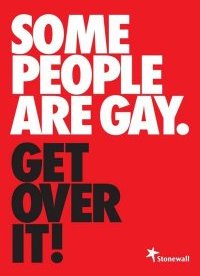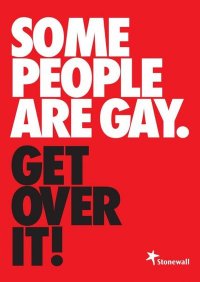Of Bathrooms and Bullycides: How Not to Protect LGBT Youth from Harassment
On May 22, 2011, the National Basketball Association (NBA) fined Chicago Bulls’ center Joakim Noah $50,000 for yelling a homophobic remark at a fan during a televised game broadcasted to 10.8 million viewers. Although Noah apologized and blamed the remark on his “frustration” with the fan, Noah’s remark is an example of a culture that exacerbates aggression and animosity towards the lesbian, gay, bisexual, and transgender (LGBT) community—particularly LGBT youth—through unequal treatment and the use of homophobic remarks. Ninety-seven percent of all high school students report that they regularly hear homophobic remarks from peers. The fear of harassment from these remarks, as well as physical violence, drives nearly one-third of LGBT students to drop out of high school. And of the 2.25 to 2.7 million LGBT youth, as many as one in three have attempted to commit suicide. It is beyond evident that schools must strive to create a safe environment for all students. Below Professor Susan Hazeldean discusses LGBT youth, bullying, and the need for educational reforms.
Professor Hazeldean joined the Cornell Law School faculty as an Associate Clinical Professor in July 2011 and created the LGBT clinic. Beginning in Spring 2012, students will work on projects that advance LGBT equality, and will represent LGBT persons in immigration and prisoners’ rights cases. Prior to joining the Cornell faculty, Professor Hazeldean taught at Yale Law School, where she supervised students representing immigrants and low-wage workers in civil rights actions, policy work, and community-based advocacy.
Just this past month, another young person took his life reportedly after enduring years of anti-gay bullying at the hands of his high school classmates. Jacob Rodgers was the latest in a long string of “bullycides” by lesbian, gay, bisexual, and transgender (LGBT) young people who killed themselves after being taunted because of their sexual orientation or gender identity. Anti-gay and transphobic harassment in schools is a public health crisis. The majority of LGBT young people report suffering homophobic or anti-transgender abuse at school; two-thirds of LGBT youth surveyed said they felt there.
Effective action is desperately needed to improve the lives of LGBT students in their schools. Unfortunately, schools acting to protect LGBT youth frequently exacerbate their social isolation and vulnerability rather than ameliorating it. Last month, Fort Collins High School in Colorado suspended Dionne Malikowski because she used the girls’ bathroom at her school. Ms. Malikowski is transgender; she identifies as female and lives as a girl but was designated male at birth. Because of Ms. Malikowski’s gender identity, school administrators prohibited her from using the bathroom with her peers and instead ordered her to use only a staff bathroom. Reportedly this measure was intended to protect Ms. Malikowski’s safety. But excluding her from the girls’ bathroom and punishing her when she used it did not protect her from harassment. Indeed it intensified the bullying Ms. Malikowski was already experiencing.
Similarly, fifteen-year old Sara Couvillon was told she would not be allowed to attend her Alabama High School wearing a T-shirt that said, “Gay? Fine by me.” Although Couvillon reports never to have experienced violence against her, Hoover High School claimed that banning the T-shirt was necessary to protect Sara from anti-gay bullying.
Let’s assume that Malikowski and Couvillon’s schools sincerely hoped to protect LGBT students from bullying. Presumably, Couvillon’s teachers believed that preventing its students from being identified as LGBT (or as an LGBT sympathizer) would protect them from homophobic harassment. Similarly, Ms. Malikowski’s teachers must have thought that keeping her away from her peers was the best way to stop them from bullying her in the bathroom. In reality, however, making support for LGBT people literally unspeakable or labeling a transgender girl unfit to use the same toilet as her peers does not prevent harassment, it encourages it. Such actions tell students that being LGBT is unacceptable, that LGBT identities are inferior, and that LGBT students do not deserve to participate openly at school. These are the very attitudes that fuel anti-gay and transphobic harassment.
If schools really want to improve the situation for LGBT students, they need to do the opposite of what Hoover High School and Fort Collins High School did. Instead of silencing LGBT identities, schools should encourage LGBT students and their supporters to openly express their identities with pride. LGBT students should have access not only to safe bathroom spaces that accord with their gender identity but also opportunities to occupy positions of leadership and prestige among their peers. The antidote to bullying is not silence and isolation, it is esteem and respect. If schools really want to ensure their students’ safety (and to avoid legal liability for failing to prevent bullying), they must ensure that LGBT students are full participants in the life of the school rather than excluding them for expressing their identities.



If only more school administrators read posts like this. It seems as if recent academic attempts at furthering LGBTQ rights as of late have insulated the LGBTQ community more than it has integrated them, and that’s really not the direction we need to be going as a society. This sort of behavior is going to do little but produce a legion of gay and lesbian students that feel isolated and disconnected from society.
Incidentally, this whole issue is not restricted to the LGBTQ community — schools nationwide seem to have a paranoia about allowing students to express opinions (be they controversial or not), to the point where schools have banned breast cancer awareness t-shirts because they were (I suppose) offensive. If schools have a policy of routinely dissuading students from expressing relatively benign opinions, the LGBTQ community is unfortunately going to have a hard time getting their opinions out in the open.